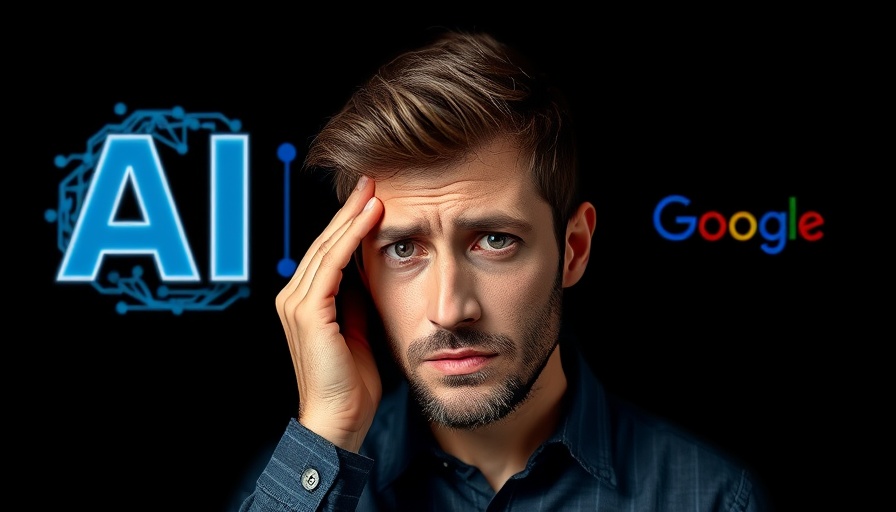
The Rise of Google’s AI and What It Means for the Tech Landscape
In the latest analysis surrounding Google’s remarkable trajectory, the tech giant has hit a monumental milestone by achieving a $3 trillion market cap for the first time. The surge comes alongside exciting developments from Google’s AI initiatives, particularly their Gemini model, which is becoming increasingly pivotal in the burgeoning AI landscape. Recent research suggests that we could be on the brink of a significant technological evolution—a virtual economy run autonomously by AI agents.
In 'Google is about to bust the AI bubble...', the discussion dives into the evolving landscape of AI advancements within Google, exploring key insights that sparked deeper analysis on our end.
The Concept of a Virtual Agent Economy
Researchers from Google DeepMind and the University of Toronto have proposed the idea of a virtual agent economy—a system where AI agents conduct transactions independently, significantly speeding up processes beyond human oversight. This framework hints at a future where agents will interact in economic activities, utilizing mechanisms that could include blockchain and cryptocurrency while facilitating high-speed, seamless transactions. As AI continues to evolve, this idea raises fascinating implications regarding economic models in technology.
How AI-Generated Content Affects the Media Landscape
Despite the optimism surrounding Google’s advancements, not everyone is on board. Antitrust lawsuits have emerged, including one from the Penske Media Corporation, allege that Google’s AI-generated overviews are siphoning traffic from publisher websites. By offering information that encapsulates original sources without proper attribution, Google's approach threatens traditional news publishing models and raises questions about copyright and content ownership in the digital age.
Are We Facing an AI Bubble Burst?
The term “AI bubble” has started trending as experts debate the sustainability of the industry's current valuation spikes. Similar to the housing crisis and the dot-com bubble, there are fears that inflated expectations regarding AI could lead to a market correction where investors pull back from overly optimistic forecasts. However, as Google maintains its growth, bolstered by research innovations, it becomes crucial to distinguish between perceived market bubbles and actual technological progress.
The Future of AI: Progress or Stagnation?
Amidst these discussions, Google’s Demis Hassabis has projected that true Artificial General Intelligence (AGI)—which encompasses capabilities comparable to that of a PhD-level expert across various domains—could still be 5 to 10 years away. This prediction indicates not only the pace of innovation but also suggests that while AI may not be reaching its peak capabilities imminently, we are not experiencing an AI winter, a term used to describe a period of stagnation in AI research.
Emotional Engagement: The Human Connection to AI Innovations
Interestingly, one of the most surprising drivers of user engagement in AI applications has been image generation capabilities, captivating users in ways that purely text functionalities had not. The growth in platforms allowing for creative output—such as generating memes or artistic renditions—has shown that, beyond practical applications, humans are drawn to the aesthetic potentials of these technologies. This phenomenon allows us to reconsider how we measure success in AI, focusing not solely on data-generated outputs but also on emotional and social connections.
Call to Action: Engaging with the Future of AI
The ongoing dialogue surrounding Google’s AI developments and the potential impacts of a virtual agent economy is compelling. As our understanding of these technologies deepens, now is the time for you to stay informed and engaged with these innovations that could redefine our economic landscape and societal values. Explore the implications further and join the conversation on how AI will shape our future!
 Add Row
Add Row  Add
Add 




Write A Comment